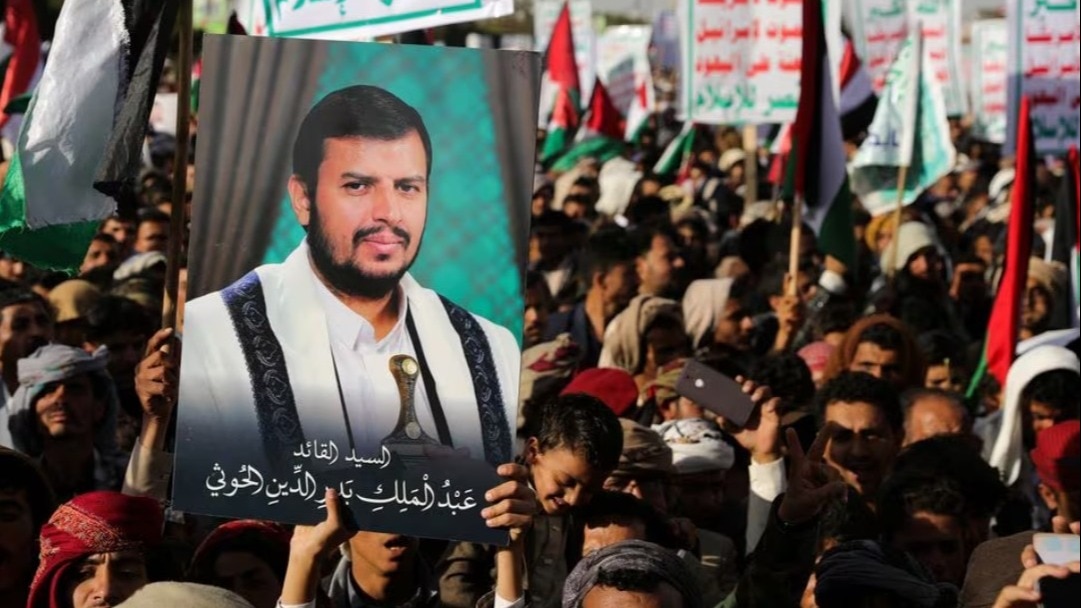2024-01-13 11:45:31
Yemen’s Houthi group have developed from a rural militia which mostly engaged in insurgency tactics into one of the most resilient non-state armed groups in the region, say analysts. The group is now taking on the US and the UK which attacked its military targets in Yemen after it launched a series of attacks on ships in the Red Sea.
At the top of this Iran-backed group is its enigmatic leader, Abdul Malik al-Houthi, under whose direction the group has acquired tens of thousands of fighters and a huge arsenal of armed drones and ballistic missiles.
Abdul Malik became the Houthi’s leader after his brother, who founded the group, was killed by security forces in 2004, according to a report by news website Middle East Eye.
The Houthi movement was formed to fight for the interests of the Zaydi Shi’ites, a minority sect that ruled a 1,000-year kingdom in Yemen until 1962. The group now controls most parts of Yemen, including the capital, Sanaa.
Since 2015, the Houthis have fought against Yemen’s Saudi-backed government and forced it into exile in 2021. During this conflict which has lasted almost 10 years, Abdul Malik al-Houthi established a reputation as a fierce battlefield commander.
According to a report by news agency Reuters, Abdul Malik in 2022 said the group’s goal was to be able to strike any target in Saudi Arabia or the United Arab Emirates, both major OPEC oil producers who view Iran and its proxies as major security threats to the Middle East and beyond.
MYSTERY AROUND HOUTHI LEADER
Abdul Malik is famous for his inclination to frequently change locations, avoiding prolonged stays in one place. He is notable for refraining from engaging with the media and displaying a pronounced reluctance to participate in scheduled public events.
Since the start of the Yemen war, individuals from foreign delegations who have interacted with Abdul Malik have never encountered him in person, a source familiar with the matter told Reuters.
Anyone who sought to meet him was often asked to journey to the Houthi stronghold in Sanaa. There, a Houthi security convoy would facilitate their transportation to secure locations, where thorough security checks would be conducted. They would then be led to an upper-level room where the Houthi leader would only make an appearance via a screen.
ATTACK ON SHIPS IN RED SEA, DEFIANCE OF UN CALL
The Houthis officially entered the ongoing Israel-Hamas war in November last year, signalling a significant escalation of the ongoing situation in West Asia. The group vowed to attack ships linked to Israel or bound for Israeli ports and since then has targetted 27 vessels.
It also defied UN and other international calls to halt their missile and drone attacks on Red Sea shipping routes.
On Friday, US and British warplanes, ships and submarines launched dozens of air strikes across Yemen against Houthi targets. The group said five of its fighters were killed in 73 air strikes.
After the attacks by the US and the UK, the Houthis doubled down and warned that the attackers were going to pay a heavy price.
In a video which is being widely shared on social media, Abdul Malik al-Houthi has warned that any US attack on the group would not go without response.
In a televised speech, Abdul-Malik al-Houthi said the group would confront any ‘American aggression’, adding that his organisation would not stop its attacks on ships linked to Israel in the Red Sea.
Further, he claimed the Houthis were not disrupting ships from other countries and would not interfere with their passage through the Red Sea and the Bab-el-Mandeb strait, a narrow passageway between Djibouti and Yemen.
Iran also condemned the US-Britain attack and said it was a “violation of Yemen’s sovereignty and territorial integrity”.
Abdul Malik al-Houthi, Abdul Malik al-Houthi Yemen, Abdul Malik al-Houthi Red Sea attack, Houthi Red Sea attack,
Source link
![]()
